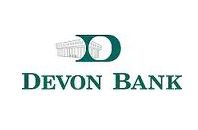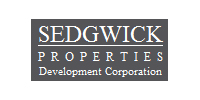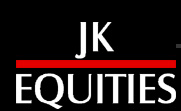Single vs. Multi-Family – What Should You Invest In?
Meta: This article will be your guide to making the best decision: single vs. multi-family – what should you invest in? Read on to gain more confidence in your decision-making.
Single-family vs. multi-family investment – that is the debate. And it’s prevalent among real estate investors. Both can be pretty lucrative, bringing some great tax benefits. Still, these two types of investment come with their distinctive sets of advantages and disadvantages. Thus, to decide what your next investment will be, you need to find out what they are. And if you are a beginner in real estate investing, you need to be sure you understand the difference between these two types of properties. So, in this article, you will find out all you need to know to make an informed decision.
Single vs. Multi-Family – Which Is Which?
If you invest in a single-family home, you invest in a standalone property. It can be a house or a condo that you rent to a single tenant, and you should always consider the size and location of the unit. On the other hand, a multi-family property is a single building that contains two or more residential units. So, you will rent to multiple tenants.
Single-family investment is usually a way to get into the real estate world. These properties are easier to buy, and new investors can find an affordable property they can upgrade on a budget and attract tenants. Also, such properties usually see a lot of appreciation over time.
Either way, both single and multi-family properties will generate solid passive income, and they will be a great way to diversify your investment portfolios.
Is It Wise To Invest Now?
Many people have been wary of investing in real estate over the past almost two full years. While things did seem bleak for a while, demand for housing has continued to increase. The real estate market is more than healthy, so investing in this industry is a sound decision.
Pros and Cons of Investing in Single-Family Properties
As we have mentioned, there are always positive and negative sides to any type of investment. So, let’s see what they are when it comes to single-family investing.
Pros
- Single-family properties are less expensive initially
- An excellent way to get into real estate investing and work your way up to bigger investments
- It’s easier to qualify for a mortgage
- It’s easier to sell single-family properties
- Single-family homes appreciate more over time and will generate good ROI if you decide to sell later
- Investors always have a fantastic exit strategy – it’s pretty easy to sell these homes
- Demand for single-family properties is high, and this trend has been going on for a while
- Single-family homes have lower tenant turnover – tenants are typically families that want to settle in a home and stay there longer
- Tenants typically perceive these properties as more than just a rental, and according to Best Cross Country Movers, tenants usually take better care of these homes
- Investors can manage the property themselves – no need to hire professional property managers (unless you have multiple single-family properties)
- Maintenance of single-family properties is less expensive
Cons
- Your investment portfolio will grow at a slower pace
- Single-family housing units generate less monthly income – you receive payments from one tenant only
- All improvements you make will only increase the value of that one property
- Vacant times are more problematic because you lose rental income completely; this can lead to higher foreclosure possibility
- You can’t live and rent the same property (with multi-family housing, you have an option to live in one of the units and rent the others)
- If you decide you need a property manager, fees for their services will usually be higher
- Single-family homes offer less scalability – when you increase the rent, your income rises only by that one rent
- If you decide to sell this property, competition will work in your favor; but if you choose to invest in such homes, competition can make it harder
Pros and Cons of Investing in Multi-Family Properties
Now let’s see what investing in multi-family properties implies.
Pros
- Multi-family investments have more rental income potential (while single-family homes have higher rents, several units with lower rents still generate more income
- The vacancy is not as big of an issue – other units will soften the blow of losing one rent (which also reduces the chances of foreclosure)
- Properties with up to four units can qualify for FHA loans, provided you live in one of the units – you can move out to a different home after two years, and don’t worry about the hassle of moving; easy relocation is possible with the right help
- Multi-family properties can also be a ticket to real estate investing, especially if you live there and get an FHA loan
- They are a great way to diversify your portfolio and grow it faster
- Professional property management services are cheaper as maintaining multi-family properties is more efficient
- Any repairs will increase the value of all units
Cons
- Multi-family properties demand higher initial investment
- These properties see higher tenant turnover because tenants are usually younger people who are yet to settle in somewhere long-term
- Higher tenant turnover means more costs for you to prepare the unit for the next occupant
- Higher tenant turnover also means more wear and tear (partly because tenants don’t perceive this place as their home for a more extended period of time)
- Multi-family properties are more challenging to sell as there is less competition, which reduces the number of exit strategies
Important Considerations
Keep in mind that there is a difference between investing in small, medium, and large multi-family properties. The bigger the property, the more income you generate. Also, the bigger the property, the higher upfront investment it demands. However, the bigger the property, the faster your portfolio will grow. Finally, there is less competition for larger multi-family units, so the larger they get, the fewer exit strategies you have.
Single vs. Multi-Family – Depends on Experience and Budget
In essence, the more experienced real estate investor you are, the bigger the property you can get. Generally, it would be preferable to have some experience in investing in multi-family properties. It is not to say that you shouldn’t invest if you are a beginner, but some caution is advised.
Ultimately, when considering single vs. multi-family investment, it will boil down to the budget you have at your disposal and how much down payment you can afford. Also, it would be best if you considered who much rental income you wish to get and who your target demographic is. Finally, think about whether you want to manage the property yourself or hire a professional manager. Answers to these questions combined with the pros and cons of both types of investment will help you come to the right decision.































































































